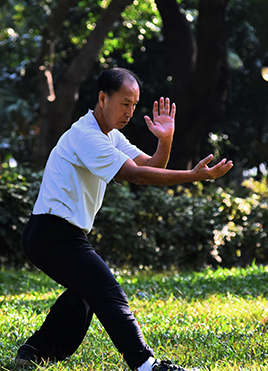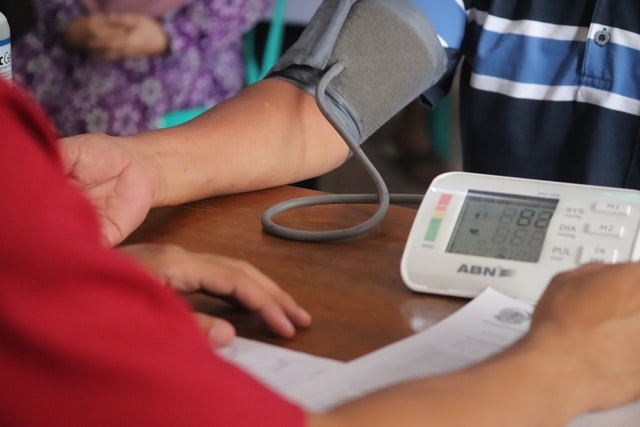Page Contents
Ageing is a natural process, but how we age is within our control. Preventive ageing refers to proactive measures that slow down age-related decline and enhance overall well-being. By adopting healthy lifestyle habits, engaging in regular health screenings, and leveraging technology, individuals can maintain their independence and reduce the risk of chronic diseases. Preventive ageing focuses on optimizing physical, cognitive, and emotional health to ensure a high quality of life well into old age.
The importance of preventive ageing
The world is facing a demographic shift, with populations ageing at an unprecedented rate. Singapore, for instance, is projected to have one in four citizens aged 65 and above by 2030. As the ageing population grows, the demand for institutional care rises, straining healthcare resources and increasing costs.
Preventive ageing is crucial in mitigating this burden by enabling older adults to remain independent for longer, reducing reliance on nursing homes and hospitals. By prioritising prevention, societies can enhance the well-being of seniors while ensuring that eldercare systems remain sustainable.
Key aspects of preventive ageing
Preventive ageing encompasses several critical elements, including:
Lifestyle and nutrition
A balanced diet and regular exercise are fundamental to healthy ageing.Medical prevention and screening
Early detection of diseases through regular check-ups can prevent complications.Cognitive and mental health
Keeping the mind active reduces the risk of dementia and enhances emotional resilience.Technology and assistive devices
Smart innovations improve safety and healthcare access for older adults.Environmental and social support
A supportive living environment and community engagement foster active ageing.
Lifestyle and nutrition
Diet and physical activity play a significant role in ageing well. Consuming a nutrient-rich diet with sufficient protein, fiber, vitamins, and healthy fats helps maintain muscle mass, prevent chronic diseases, and support cognitive health. Regular exercise, including strength training, balance exercises, and cardiovascular workouts, promotes mobility, reduces fall risk, and enhances overall well-being. Singapore’s Health Promotion Board actively promotes healthy eating through initiatives like the Healthier Choice Symbol and National Steps Challenge to encourage an active lifestyle.

Medical prevention and screening
Regular health screenings allow early detection of chronic conditions such as diabetes, hypertension, and osteoporosis. Preventive vaccinations, such as flu and pneumococcal shots, reduce the risk of infections. In Singapore, the Screen for Life program offers subsidised health screenings for chronic diseases, while other nations, such as Japan, have routine community health checks to monitor senior citizens’ well-being.

Cognitive and mental health
Engaging in lifelong learning, social activities, and mental exercises like puzzles and reading can prevent cognitive decline. Mindfulness and meditation also contribute to emotional stability and stress reduction. The Singapore government supports cognitive health through programs like the Dementia-Friendly Community initiative, which promotes awareness and support for individuals with cognitive impairment.

Technology and assistive devices
Wearable health trackers, smart home modifications, and AI-powered health monitoring enhance safety and enable seniors to live independently. Countries like South Korea have introduced robotics in eldercare facilities to assist with rehabilitation and companionship, while Singapore has piloted telehealth services to improve remote healthcare accessibility.

Environmental and social support
An age-friendly environment with barrier-free housing, accessible public transport, and active ageing hubs fosters community participation. Singapore’s Active Ageing Hubs integrate social, healthcare, and wellness services to keep seniors engaged. Similarly, Denmark’s co-housing models promote social interaction while providing necessary eldercare support.
Government initiatives worldwide
Governments worldwide have recognised the importance of preventive ageing. In Singapore, the Action Plan for Successful Ageing encourages active ageing through lifelong learning and volunteerism. In Japan, the Community-based Integrated Care System ensures that seniors receive holistic care within their communities. Meanwhile, Nordic countries emphasize home-based care, allowing seniors to age in place with adequate support.
Benefits and impact on eldercare
The adoption of preventive ageing has significant benefits:
Reduced healthcare costs
Fewer hospitalisations and medical interventions.Improved quality of life
Greater independence and mobility.Extended workforce participation
Older adults can remain active in employment or volunteering.Less strain on institutional care
More seniors can age-in-place rather than in nursing homes.
With these advantages, preventive ageing is shaping eldercare trends toward a more sustainable and community-based approach. The shift from reactive to preventive care is essential in meeting the demands of an ageing society without overburdening healthcare systems.
Conclusion
While preventive ageing offers promising outcomes, its sustainability depends on public policies, societal mindset shifts, and continued investment in health promotion. Governments must integrate preventive ageing strategies into national healthcare frameworks, businesses should support workplace wellness programs for older employees, and individuals need to take ownership of their ageing journey.
A truly sustainable preventive ageing model envisions a society where ageing is embraced as an opportunity, not a burden. This means fostering intergenerational engagement, promoting lifelong learning, and ensuring accessible healthcare innovations. By shifting the focus from treatment to prevention, we can create a resilient, inclusive ageing society where seniors thrive independently, maintaining dignity and purpose in their later years.
